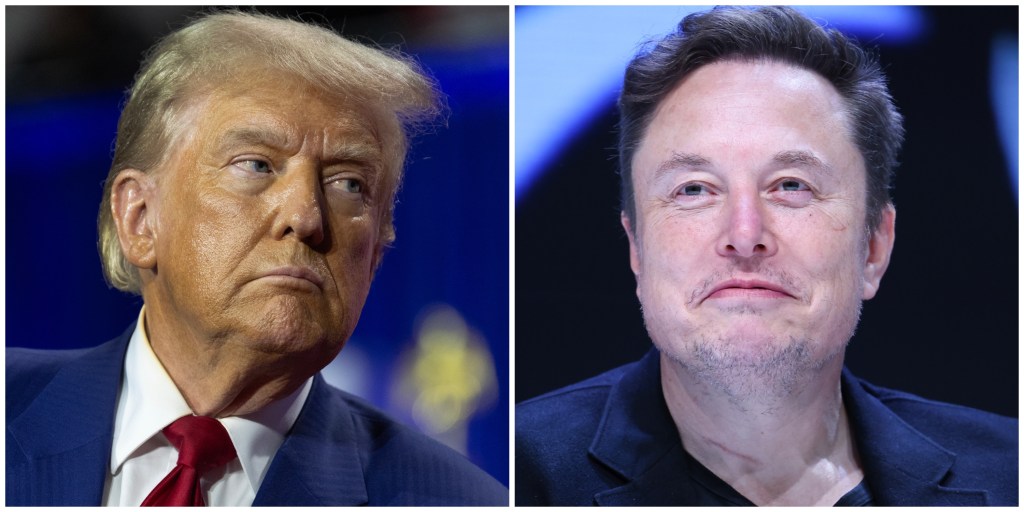The Free Speech Paradox: Understanding Trump and Musk’s Call for Media Accountability
In a world where the lines of free expression are increasingly blurred, the recent demands from Donald Trump and Elon Musk for media accountability have sparked intense debate. Both figures, emblematic of the modern American zeitgeist, have positioned themselves as champions of free speech. However, their calls for the dismissal of specific media personalities raise profound questions about the true essence of free expression, particularly in our polarized society.
The Context of Free Speech in America
Free speech, a cornerstone of American democracy, has long been celebrated as a fundamental right enshrined in the First Amendment. The essence of this right is to protect individuals’ ability to express their thoughts and opinions without fear of government retaliation. However, the contemporary media landscape presents unique challenges that complicate this ideal.
With the rise of social media platforms, the sheer volume of information—both factual and misleading—has exploded. This phenomenon has given rise to a new form of media accountability. As Trump and Musk call for the dismissal of certain media figures, it begs the question: Are they seeking to protect free speech or suppress dissenting voices?
Trump and Musk: Champions or Censors?
Donald Trump, the former President of the United States, has long been vocal about his disdain for what he terms “fake news.” His rhetoric often targets major news outlets that criticize him, painting them as enemies of the people. Recently, he has intensified his calls for accountability, suggesting that certain journalists should be removed from their positions for what he perceives as biased reporting.
On the other hand, Elon Musk, the CEO of Tesla and SpaceX, has also entered the fray, particularly after taking over Twitter (now X). Musk advocates for free speech but has simultaneously implemented policies that some argue curb certain narratives while promoting others. His actions raise questions about the consistency of his commitment to free expression.
Both figures embody a paradox: they advocate for free speech while simultaneously attempting to influence which voices are heard. This duality highlights a critical aspect of the free speech debate: the difference between advocating for free expression and wielding power to shape discourse.
The Media’s Role in the Free Speech Paradox
The media plays a crucial role in shaping public perception and conversation. However, it operates within a complex ecosystem where accountability is paramount. Journalists are often tasked with balancing their duty to inform the public with the need to maintain objectivity. The pressure from powerful figures like Trump and Musk complicates this balance.
When influential individuals call for the ousting of specific journalists, it raises alarms about the potential chilling effect on media freedom. Journalists might self-censor, fearing backlash from powerful interests. This fear can stifle diverse opinions and lead to an echo chamber effect, further polarizing public discourse.
The Polarization of Public Discourse
The current media landscape is rife with polarization. Audiences increasingly gravitate towards outlets that align with their beliefs, often leading to the reinforcement of existing biases. This phenomenon, known as confirmation bias, further complicates the notion of accountability. When Trump and Musk call for media figures to be held accountable for their reporting, they risk solidifying partisan divides.
- Confirmation Bias: The tendency to favor information that confirms one’s preexisting beliefs.
- Echo Chambers: Environments where individuals are exposed only to beliefs and opinions similar to their own.
- Media Literacy: The ability to critically analyze media content and recognize bias.
Examining the Implications of Accountability
Accountability in media is essential for a functioning democracy. However, the calls for accountability from figures like Trump and Musk highlight a dilemma: who determines what is accountable? If accountability leads to the dismissal of certain voices, it can undermine the very free speech that these advocates claim to uphold.
Moreover, the implications of such actions extend beyond individual journalists. They impact the broader media landscape, influencing which stories are told and whose voices are amplified. The potential for a more homogenized media narrative could stifle the diversity of thought necessary for a healthy democratic discourse.
Finding a Balance: Navigating Free Speech and Accountability
To navigate this complex landscape, it is crucial to foster a culture of media literacy and critical thinking. Audiences must engage with a variety of perspectives and challenge their own beliefs. Additionally, media organizations should uphold rigorous journalistic standards that prioritize accuracy and fairness, regardless of external pressures.
Encouraging open dialogue and constructive criticism can also help bridge the divide. Instead of calling for the dismissal of journalists, advocates for accountability should promote transparency and ethical reporting practices. This approach allows for the scrutiny of media without resorting to censorship.
The Path Forward: A Call for Thoughtful Engagement
The free speech paradox presented by Trump and Musk’s demands for media accountability serves as a reminder of the complexities surrounding expression in today’s society. As we grapple with these issues, it’s essential to engage thoughtfully with the media and advocate for a diverse range of voices.
In conclusion, while the push for accountability in media is necessary, it must not come at the expense of free expression. The challenge lies in finding a balance that respects the rights of individuals to express their views while ensuring that media organizations remain responsible and transparent. Only through thoughtful engagement and a commitment to diverse perspectives can we hope to navigate the intricate landscape of free speech in the modern era.
See more BBC Express News

